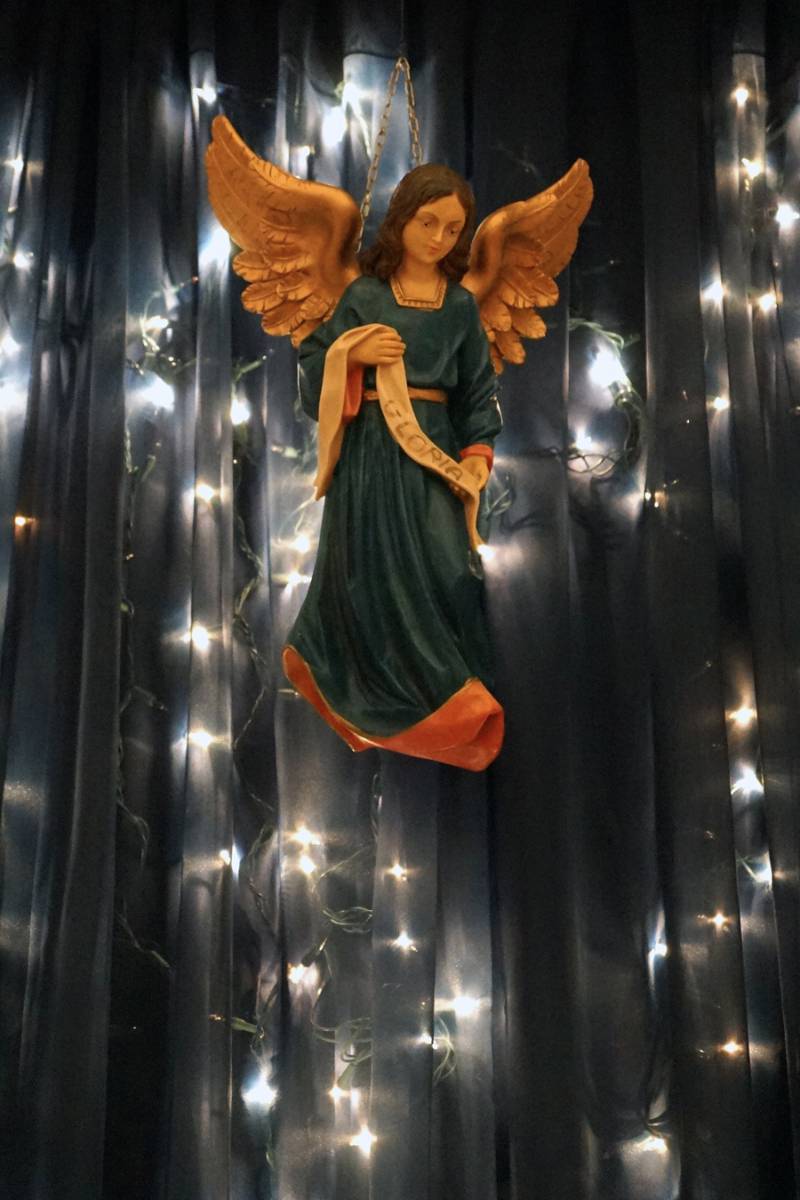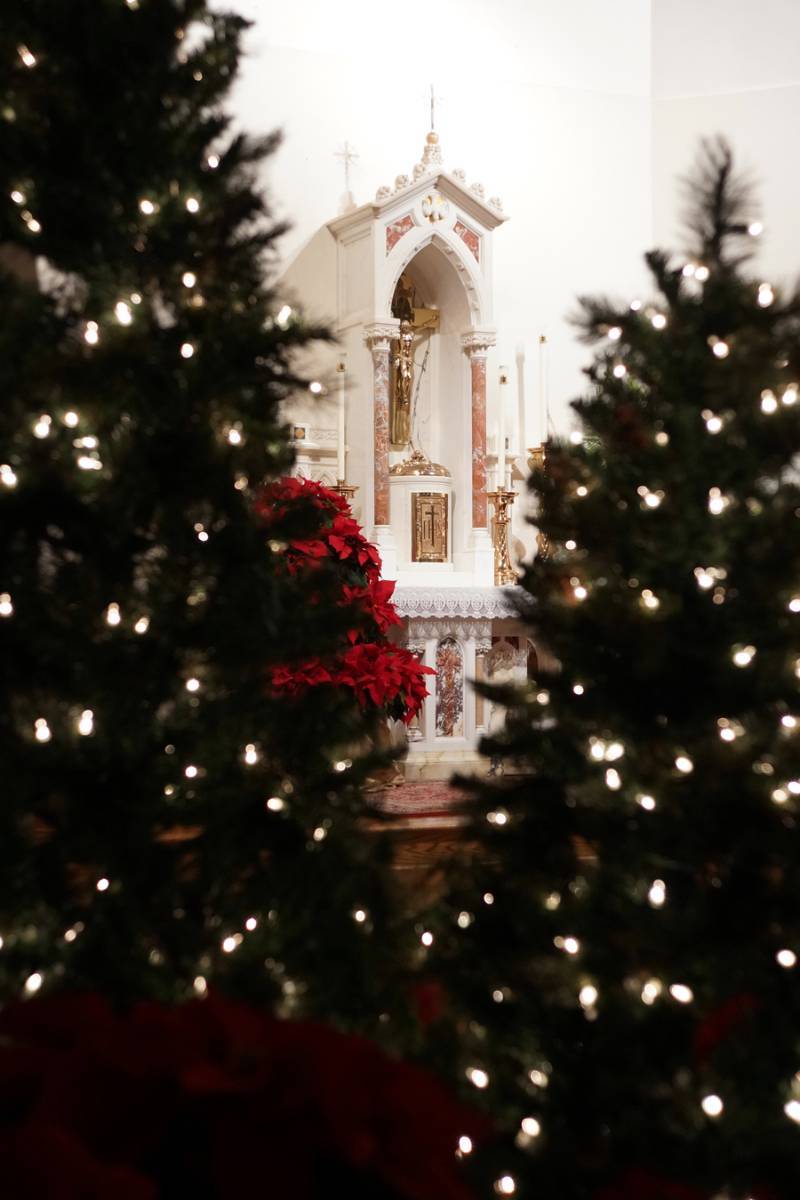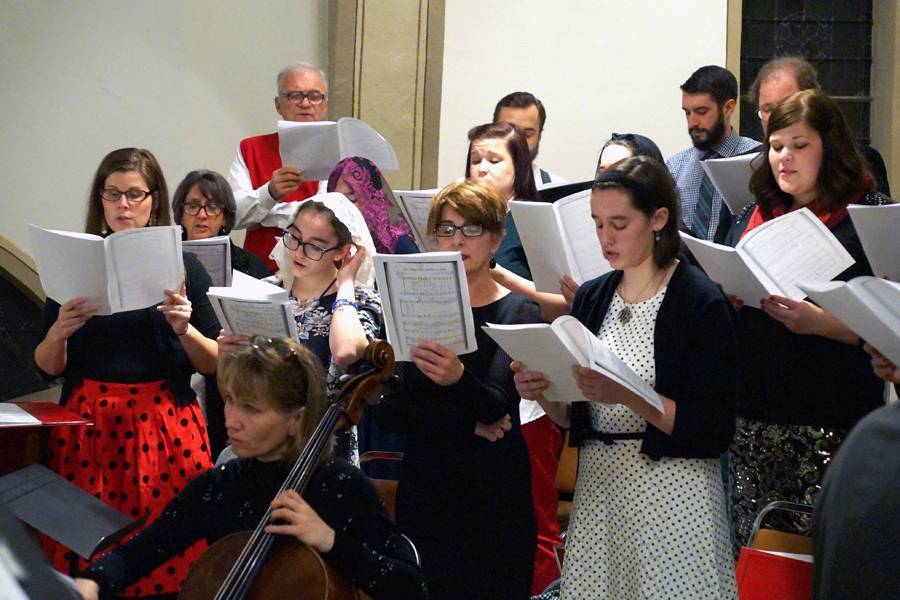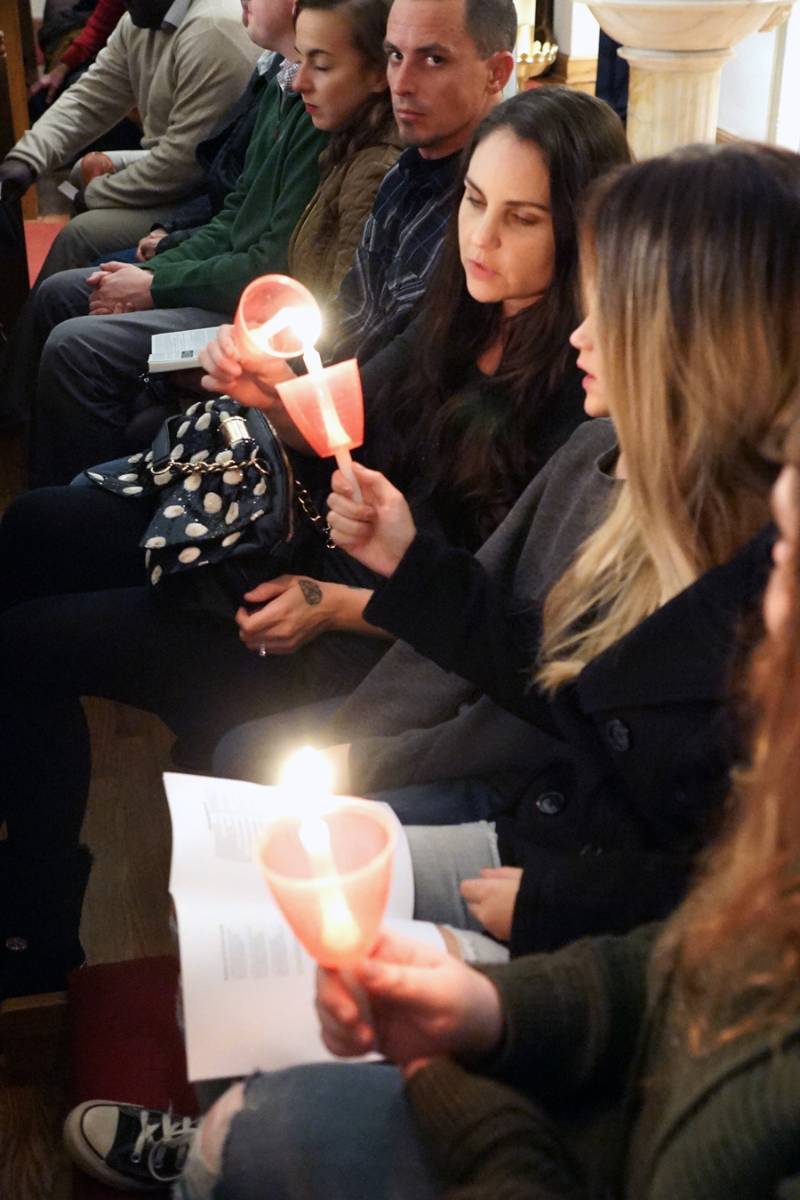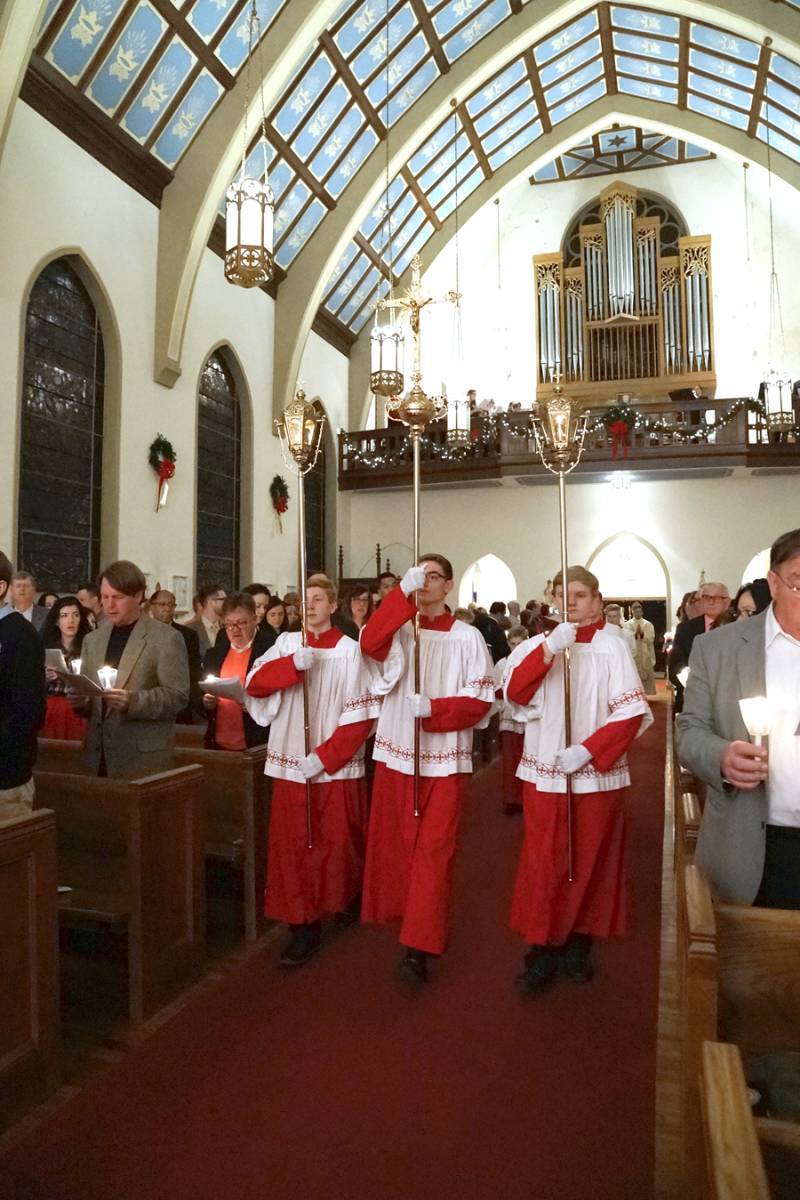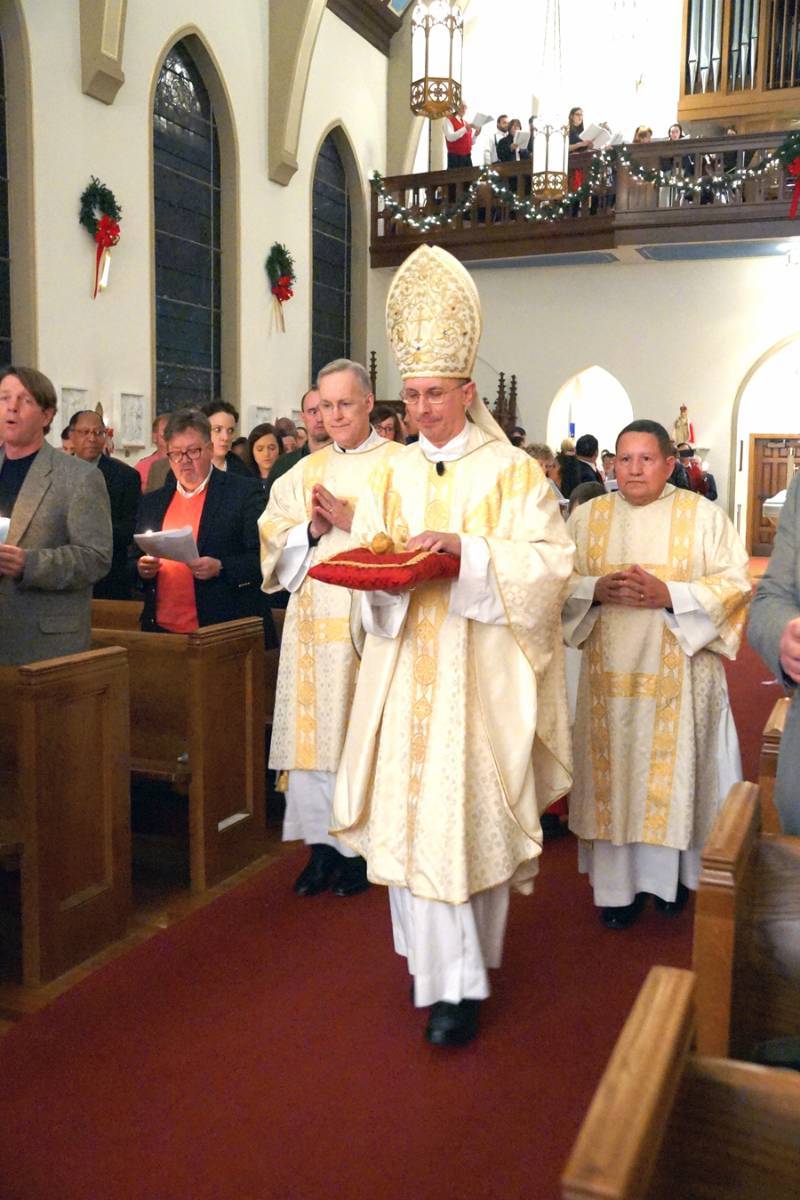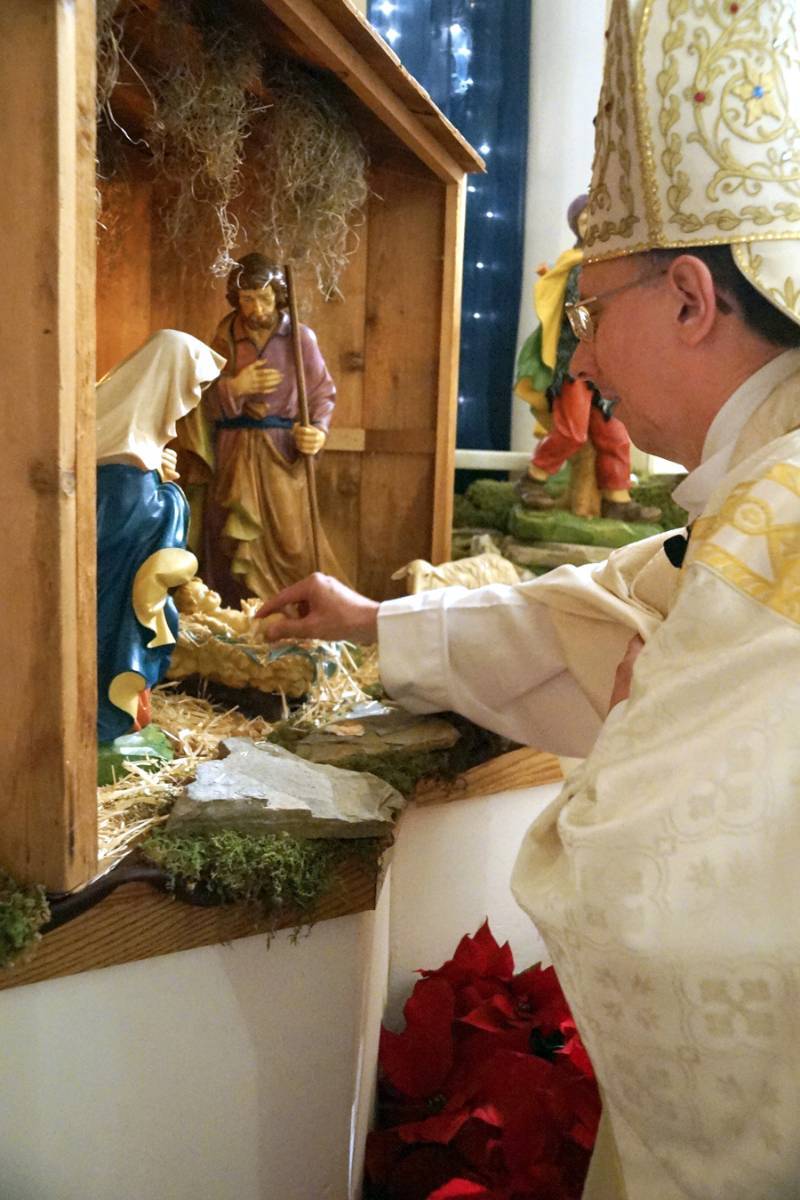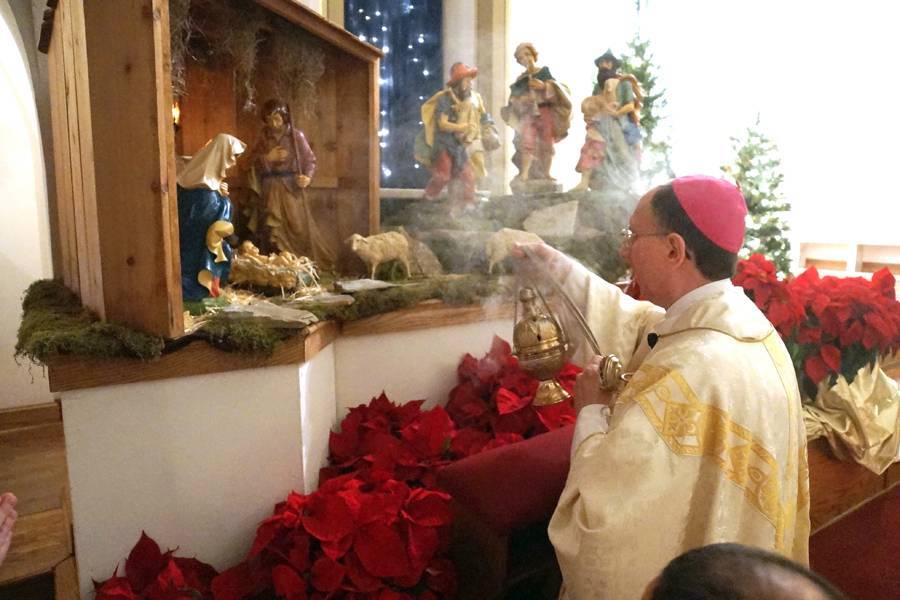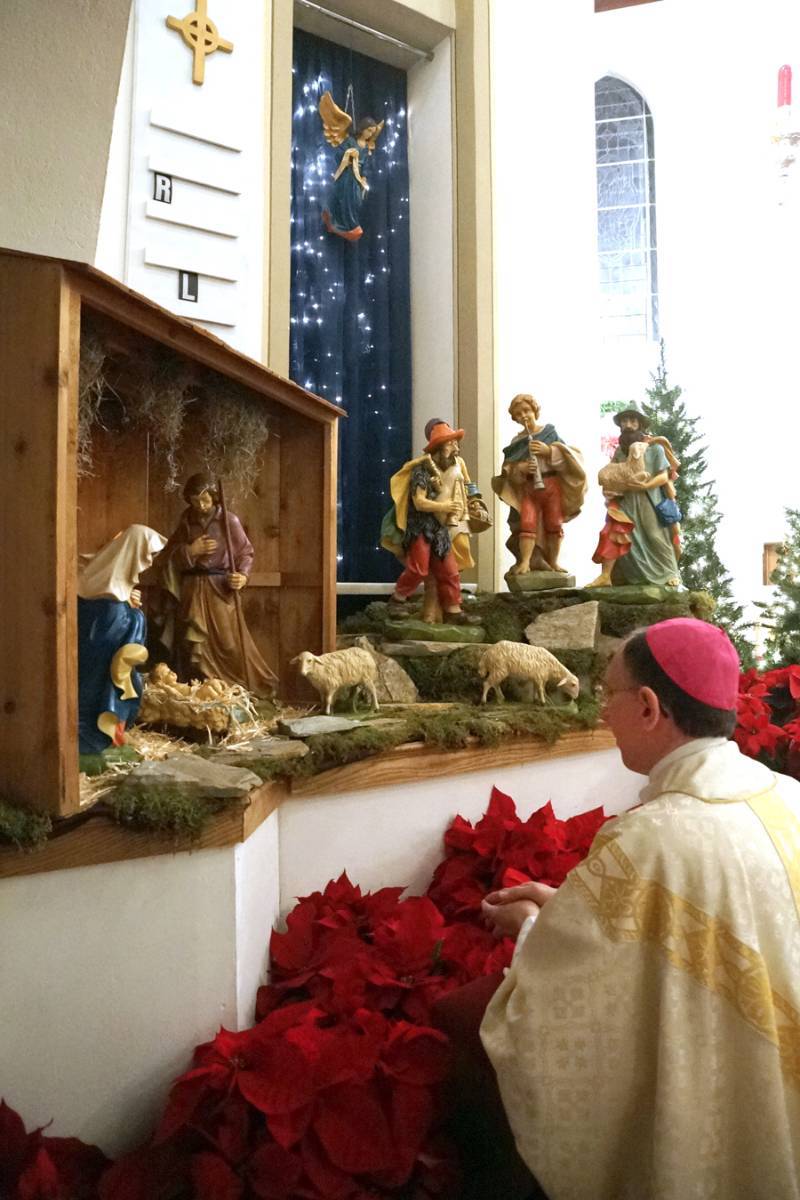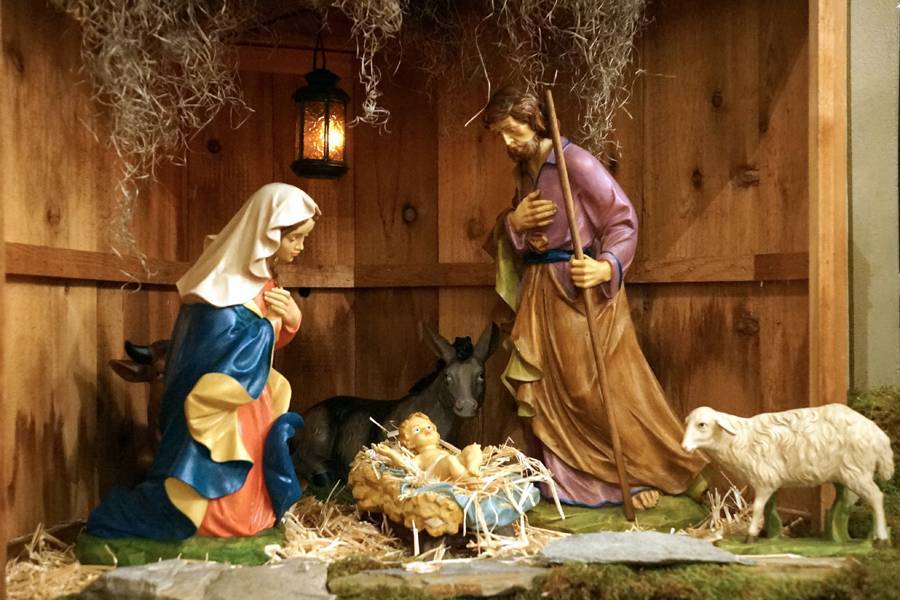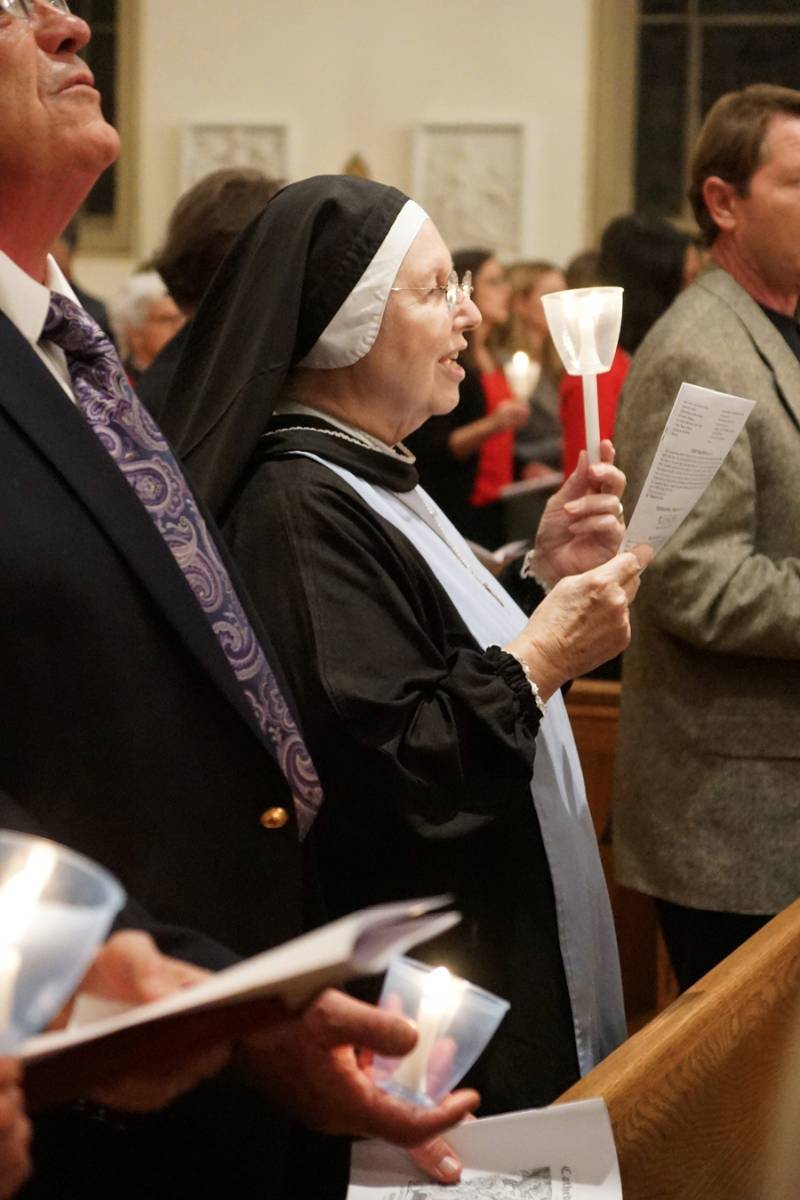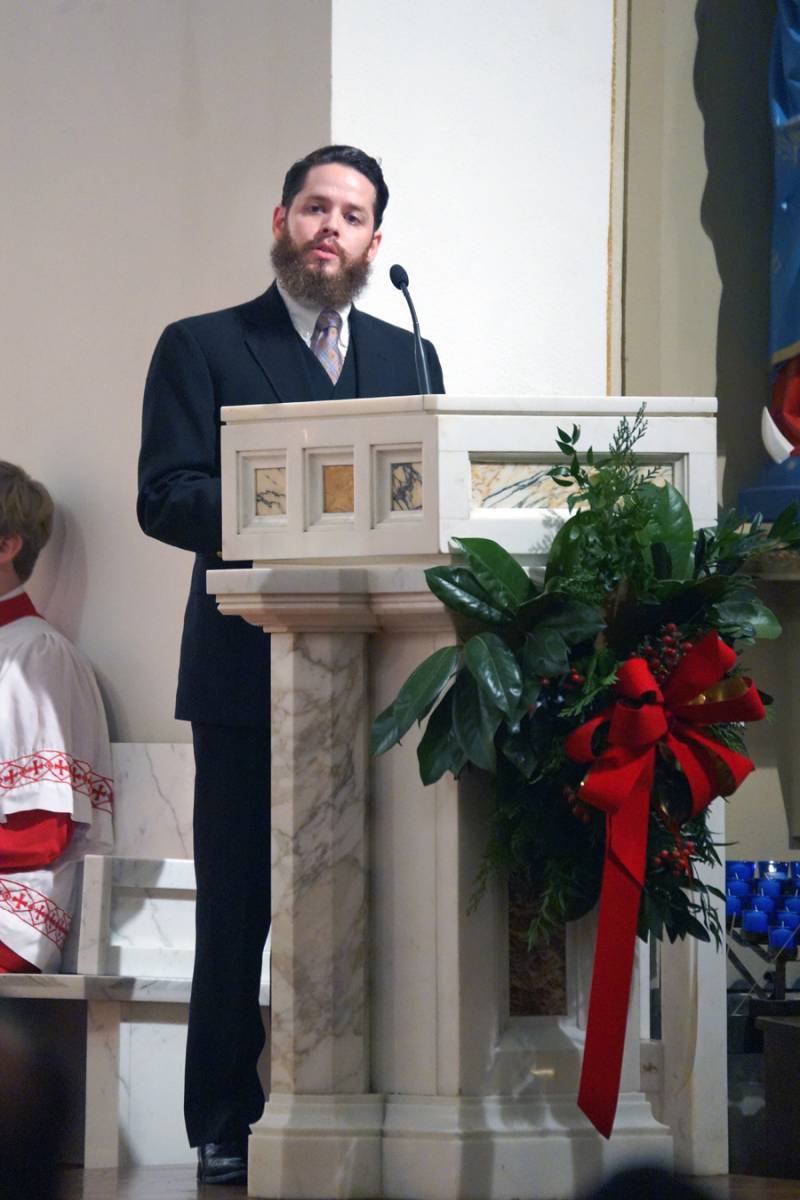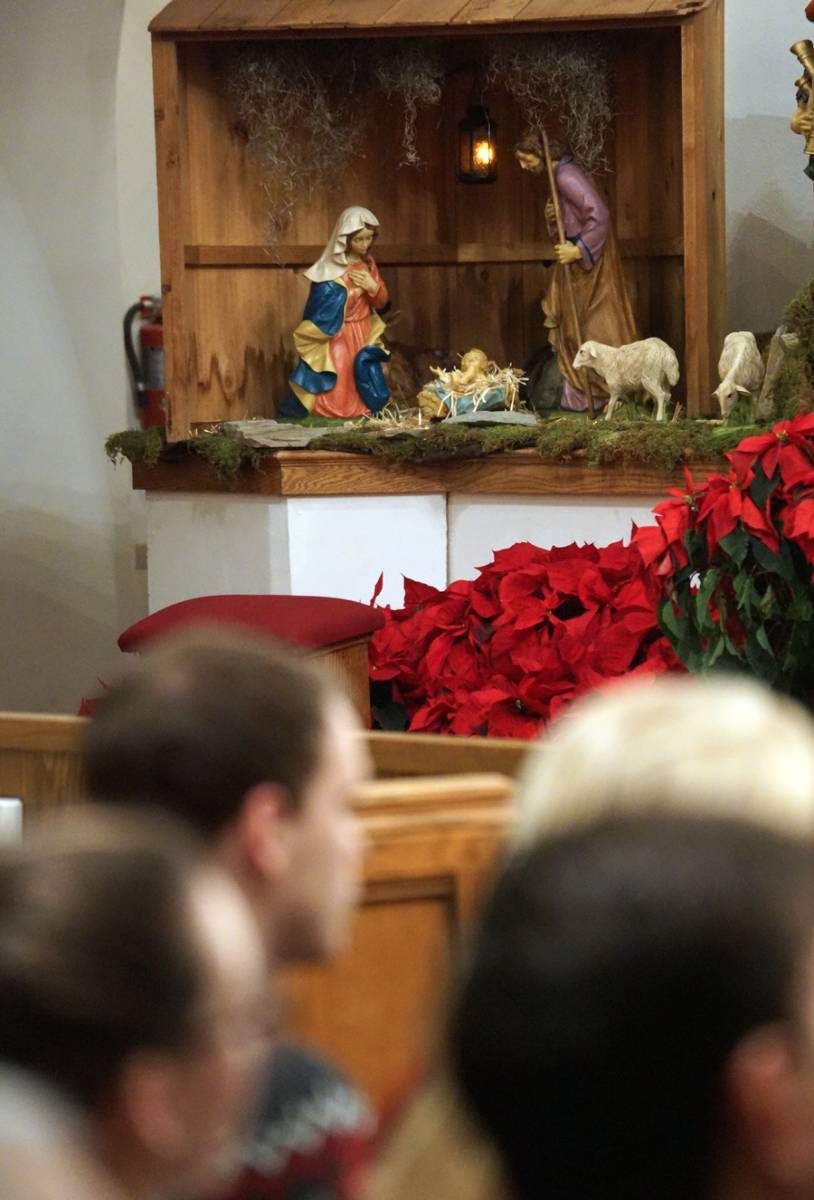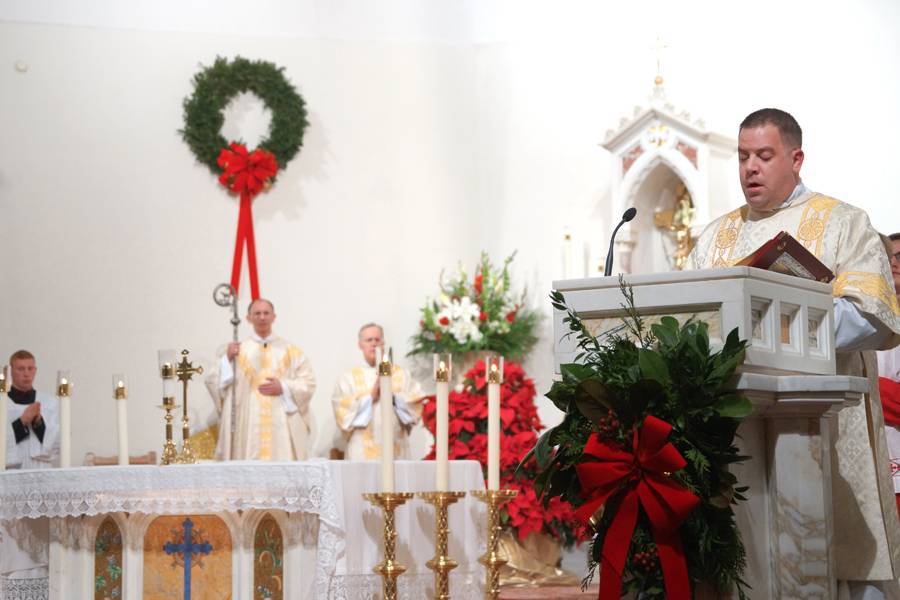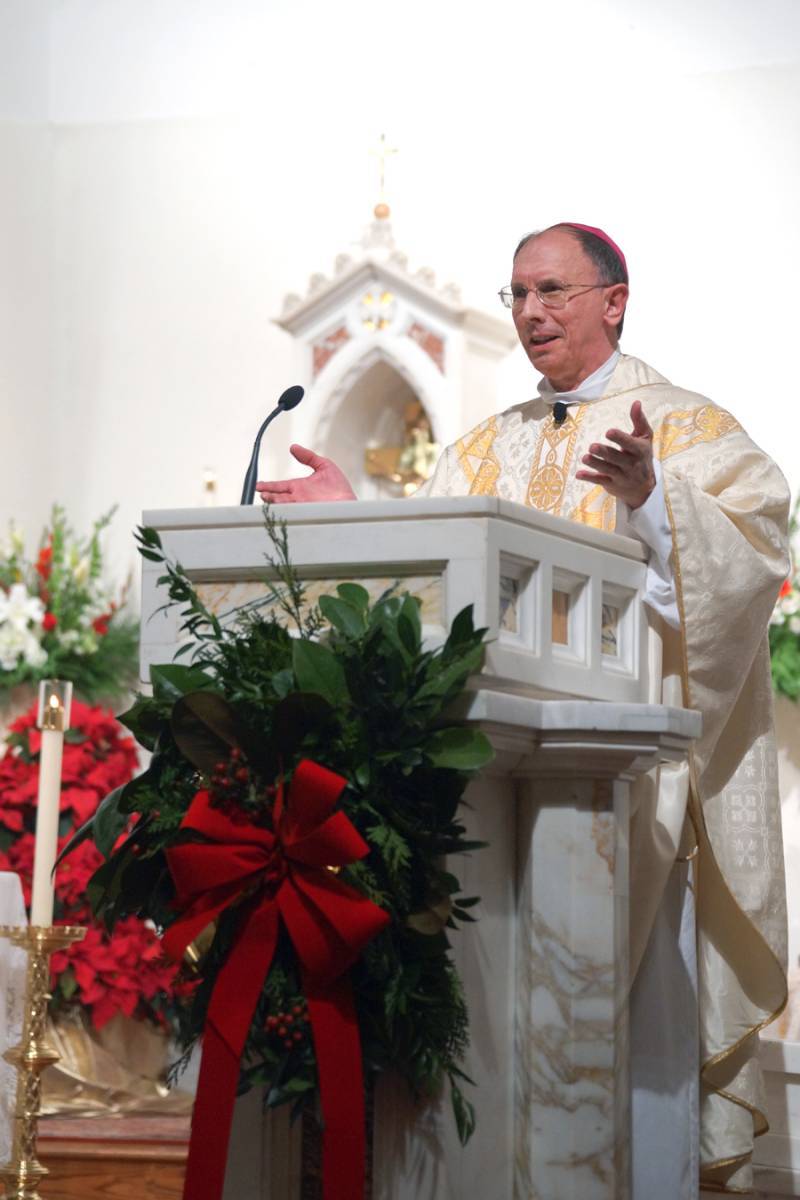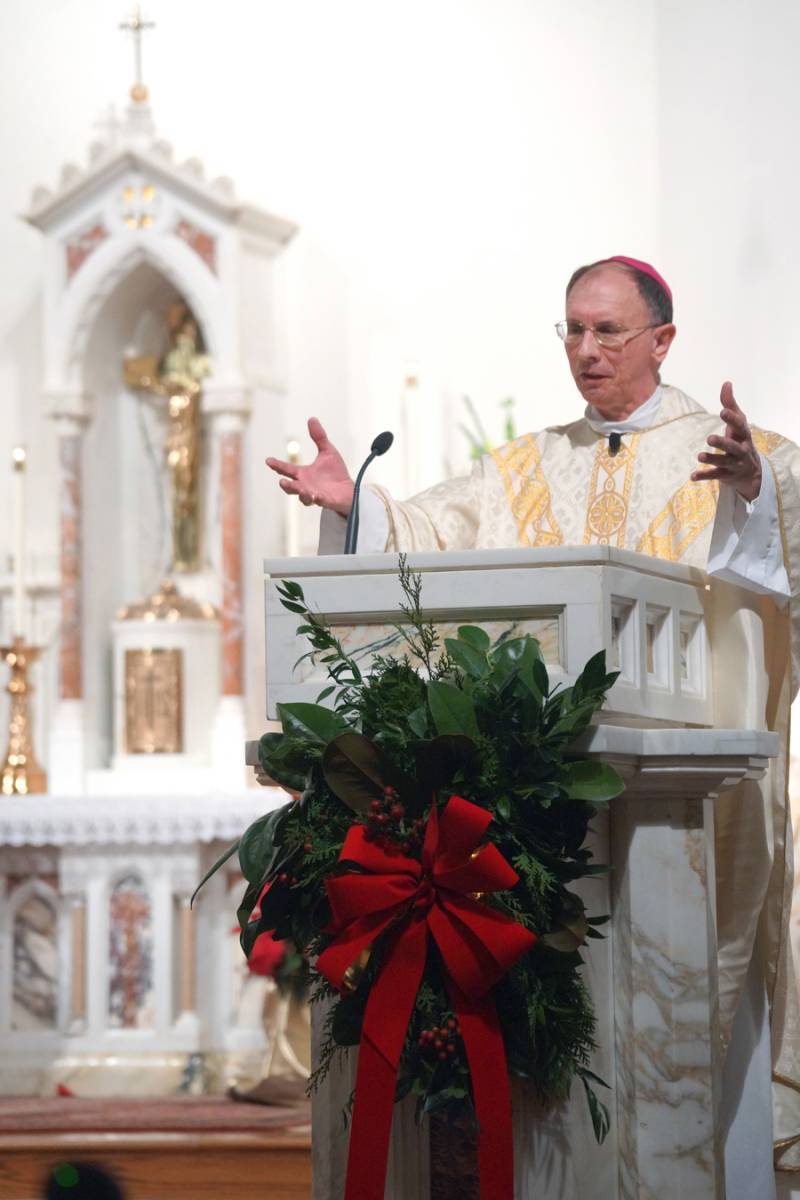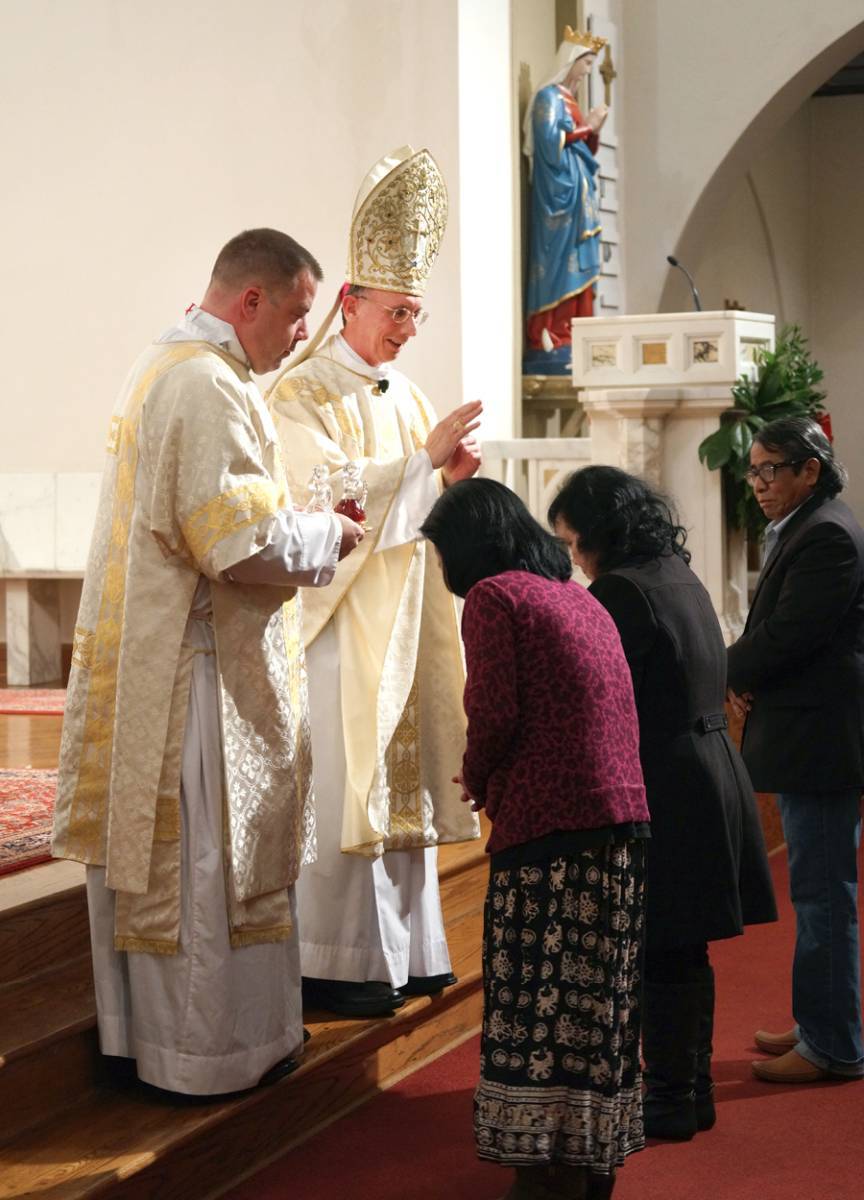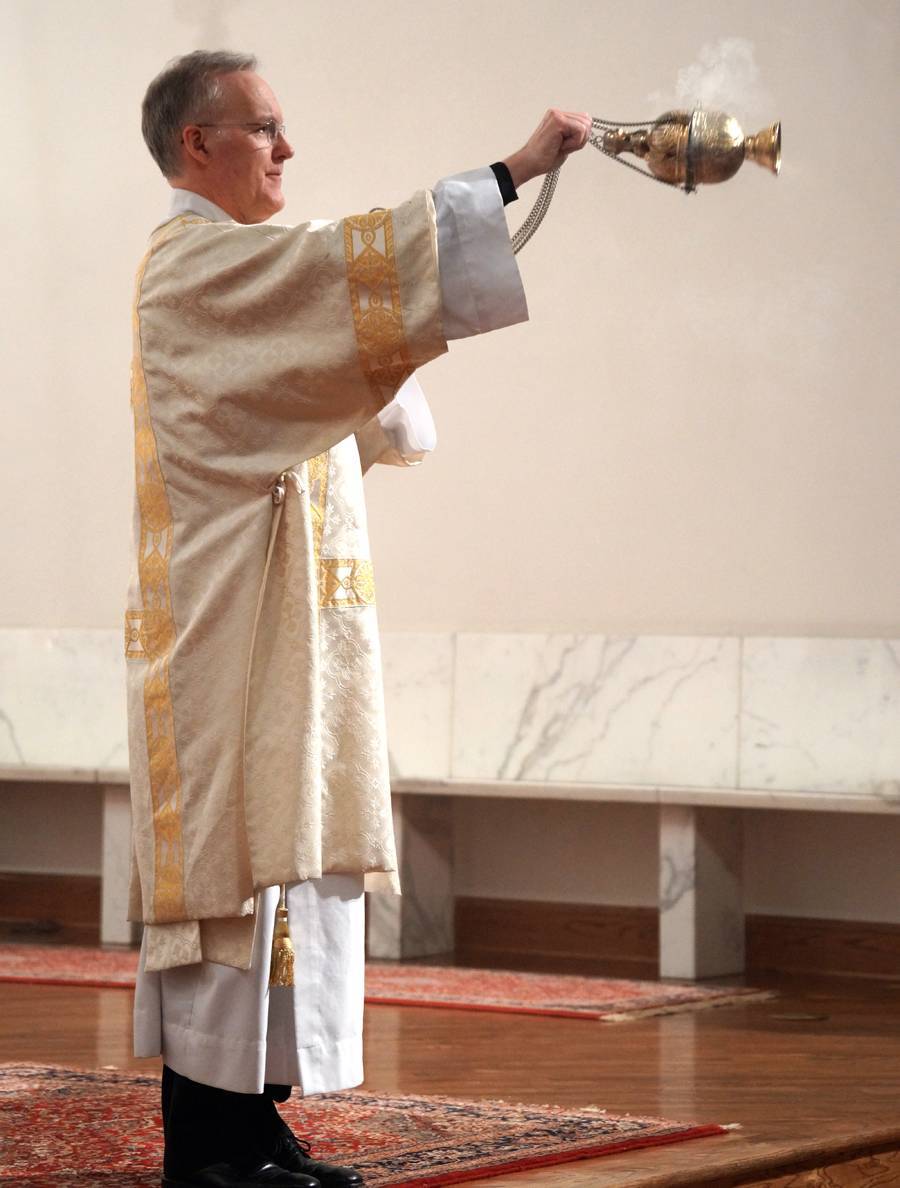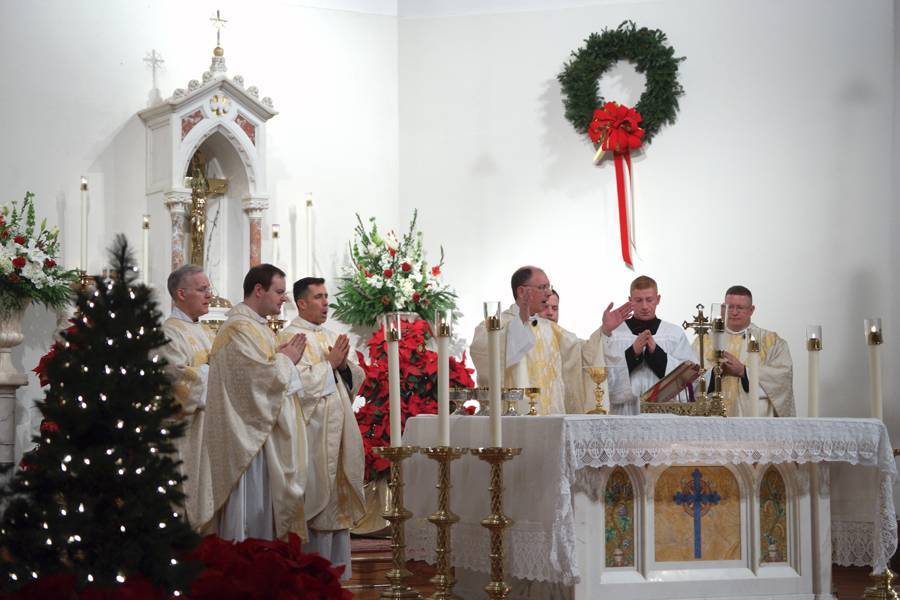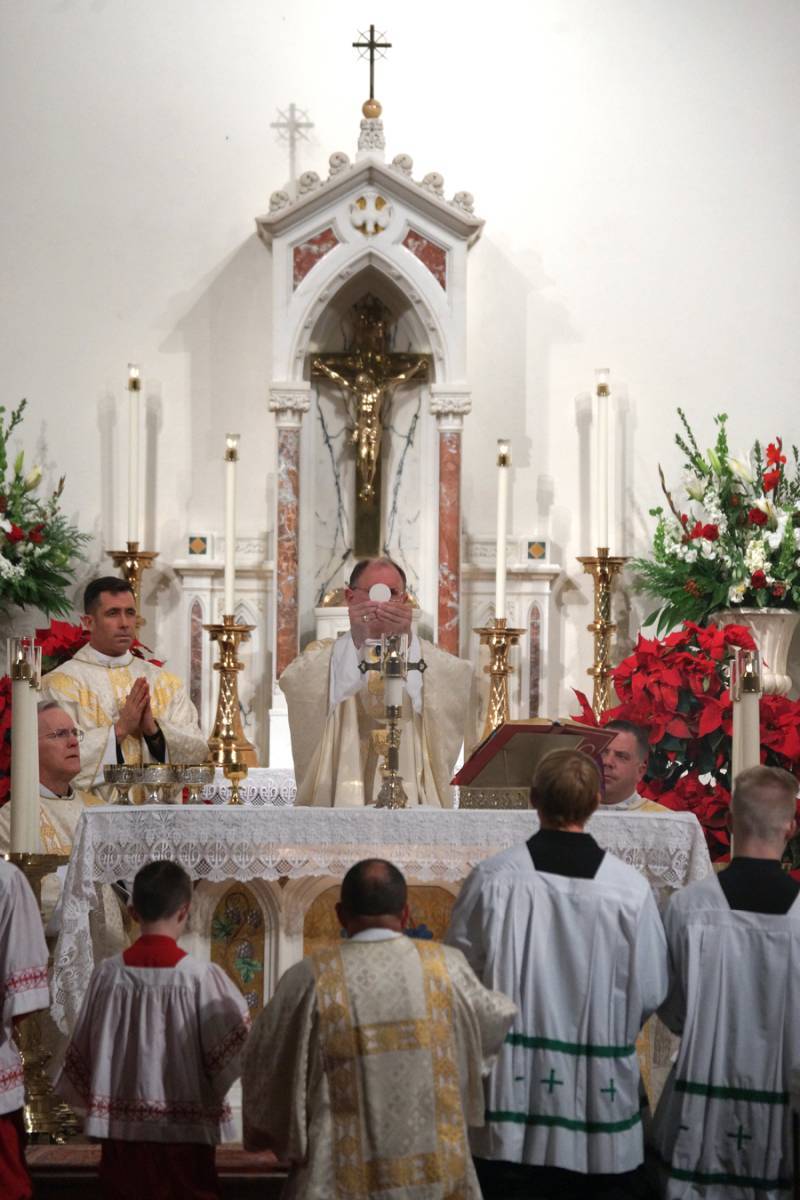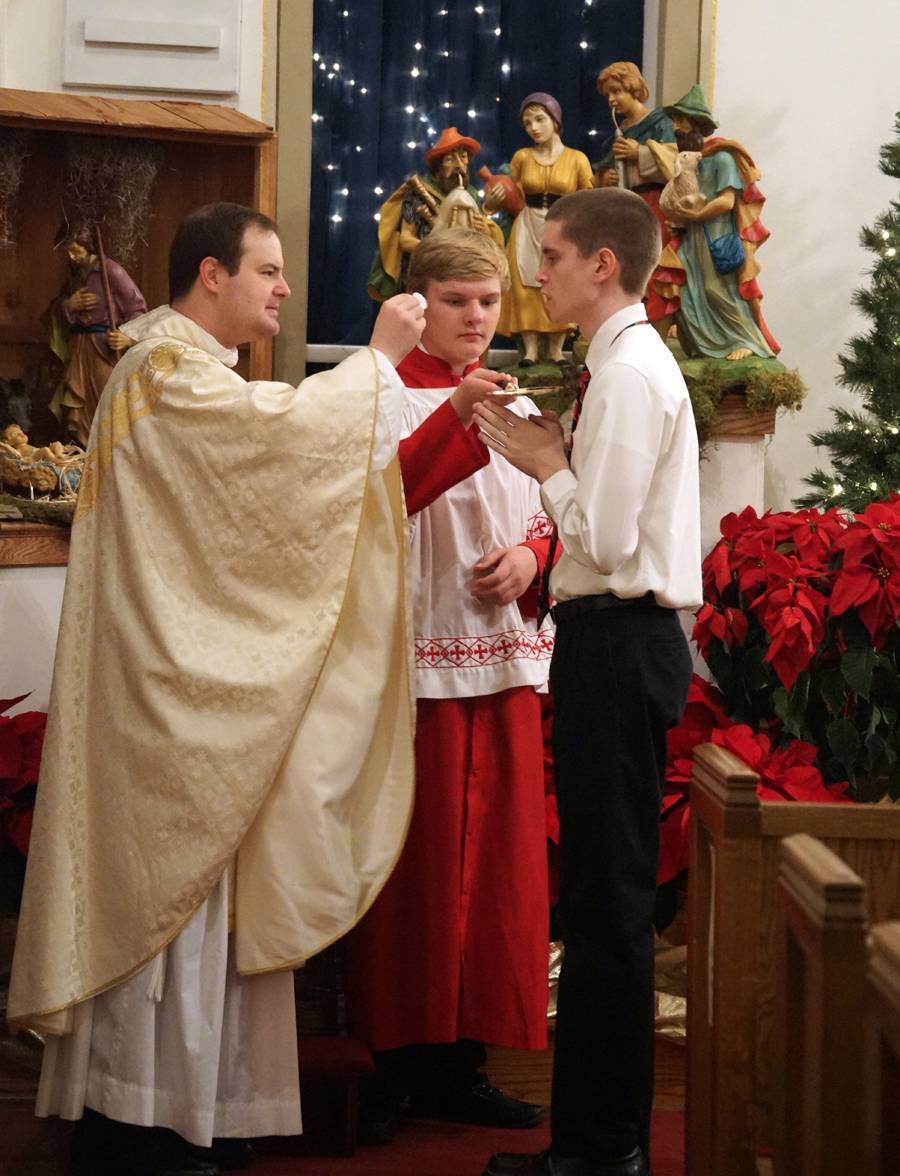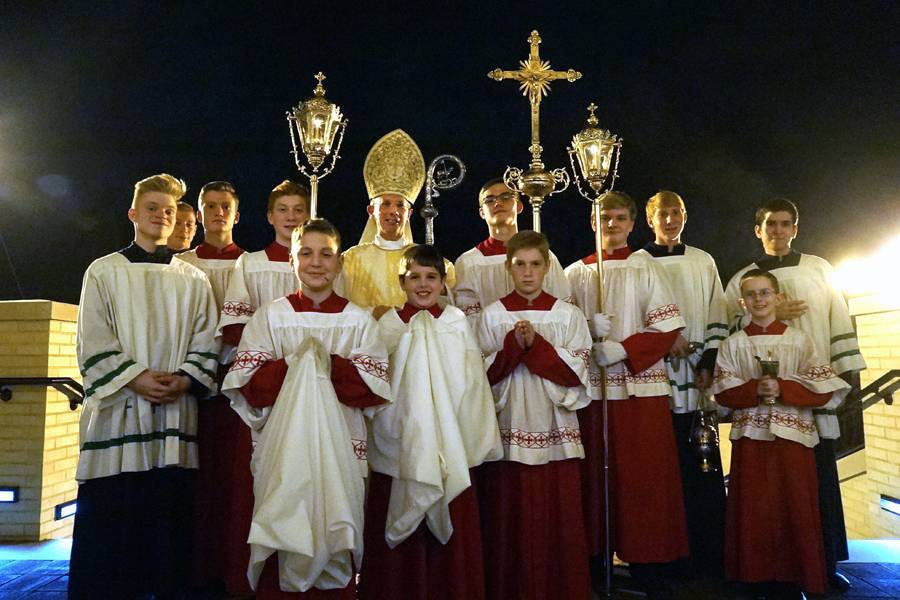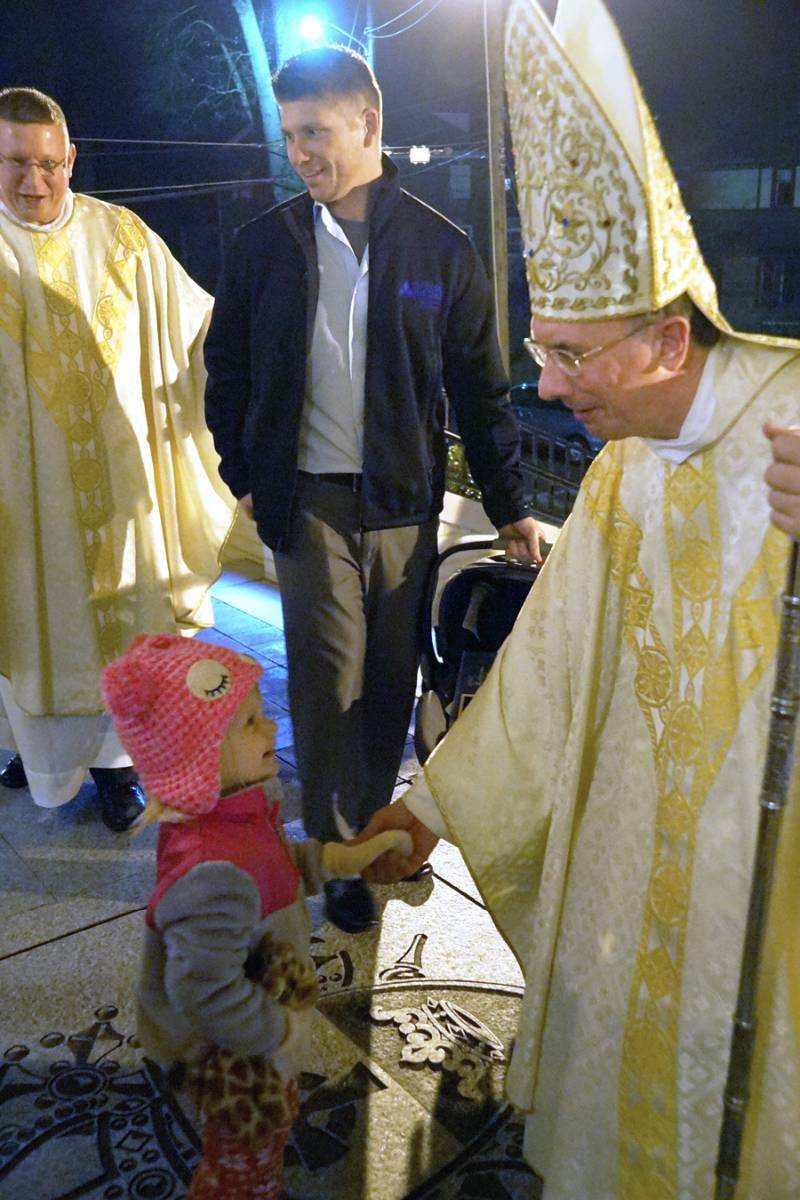 WASHINGTON, D.C. — Deacon Daren Bitter (at left), of St. Matthew Church in Charlotte, was invested into the Equestrian Order of the Knights of the Holy Sepulchre during a special ceremony at Mass Oct. 29 at the Cathedral of St. Matthew the Apostle.
WASHINGTON, D.C. — Deacon Daren Bitter (at left), of St. Matthew Church in Charlotte, was invested into the Equestrian Order of the Knights of the Holy Sepulchre during a special ceremony at Mass Oct. 29 at the Cathedral of St. Matthew the Apostle.
Deacon Bitter is the first ordained deacon of the Diocese of Charlotte to receive this honor. He was the only person in the diocese to be invested this year.
Archbishop William E. Lori of Baltimore (above at center) and Cardinal Justin Francis Rigali were among the clergy who concelebrated the investiture Mass.
“For me, it’s about making a difference. Although I am not there physically (in the Holy Land), to be associated with an organization which collectively is doing that, making a difference, calling attention to the plight of Christians there, that is important,” Deacon Bitter said.
The Knights and Dames of the Holy Sepulchre are tasked with providing material and spiritual support to the Latin rite Catholic Church in the Holy Land.
There are currently 33,000 members of the order in 40 nations worldwide. Members are required to travel regularly on pilgrimage to the Holy Land, bringing moral support to the Christians of the region.
They provide aid to the Latin Patriarchate, which consists of 68 parishes, 44 schools and 90,000 faithful in Jordan, Palestine, Israel and Cyprus. The global amount of aid annually sent to the Holy Land is more than $10 million.
— Photo Provided by Matt Barrick, Barrick Photography
 CHARLOTTE — Hundreds of people singing the joyful strains of "Hark the Herald Angels Sing" helped ring in Christmas during midnight Mass Dec. 25 at St. Patrick Cathedral.
CHARLOTTE — Hundreds of people singing the joyful strains of "Hark the Herald Angels Sing" helped ring in Christmas during midnight Mass Dec. 25 at St. Patrick Cathedral.
The cathedral was filled with parishioners of all ages for the midnight liturgy, which was celebrated by Bishop Peter Jugis.
In his homily, Bishop Jugis reminded those gathered that God "wants to draw us into the circle of His salvation and His love," and he encouraged them to draw close to God through the infant Jesus this Christmas.
"Throughout all of salvation history, He has been reaching out to us trying to draw us closer to Himself, and in Bethlehem He accomplished that in a most powerful way," Bishop Jugis said.
God, who created us and knows our weaknesses and our deepest longings of the heart, came to us in the form of an infant so that we would be able to love Him more easily, he said.
"Just think of the genius of this! What do human beings really love?" Bishop Jugis continued. "He knows that we love babies. How can you not love a baby?"
Just then – as if on cue – a baby in the congregation began to laugh and coo, to everyone's delight.
"In order to draw us to Himself, and to draw us more closely to His love, He comes as an infant child. The Son of God comes as a little child – and we are naturally drawn to Him."
"How can you resist loving Him? How can you resist loving a baby, when the baby is God?
"The tenderness, the love and the affection that we have for the infant in the manger is ultimately tenderness, love and affection (we have) for the Son of God, Jesus."
Throughout His public ministry, Jesus continues to encourage us to draw near to God, reminding us of His love for us and calling us to repent of our sins. Jesus gives us His own Body and Blood in the Eucharist, He sends us the Holy Spirit, and He reminds us that He is with us until the end of time.
"How can we run away from that love, first demonstrated to us in the Child at Bethlehem?"
"Christmas is the feast of God's love – God coming to live with us, to save us, God coming towards us. And at Christmas, we are drawn to love God in return," he said.
God's love should transform us and move us to reconcile with others and let go of past grievances, Bishop Jugis said.
"God is calling you close to Himself again this Christmas through the love you have now for the infant Jesus. So spend some time looking into the eyes of that infant Child in the crib, and love Him. Because that is God's design for bringing you to experience His love," he said.
"May God bless all of you and your families this Christmas and keep all of you in His tender loving care," he prayed.
— Patricia L. Guilfoyle, editor. Photos by John Cosmas, correspondent.


